Agnes Caroline Berckemeyer
1846 – 1929
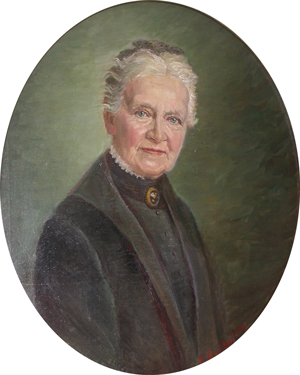
Family History Notes
Family History Notes
Berckemeyer – Hamburg Branch, Groβ Thurow Branch
Written from recollections and supported by the stories of relatives
by Agnes Berckemeyer – 1907
Transcribed by Bernd Sasse (Rheinfelden, Switzerland) in May, 2003 from a typewritten copy found in Gabriele Berckemeyer’s ancestral chest during a visit on her 95th birthday. Words and names shown in red are those which were difficult to read, or where unclear handwritten corrections had been added.
German to English translation (from Bernd Sasse’s transcription) by Pat Gibbings née Abel, Kaslo, BC, Canada. January 2013. (Agnes was my great grand aunt. PG)
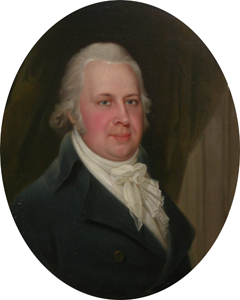
My grandfather, Bernhard Philipp Berckemeyer (BP I, 1764 – 1816) was born on Holländischen Brook[1] in Hamburg on May 20, 1764. He had a sister, Johanna Henriette and a younger brother, Heinrich Berckemeyer. We have small oil paintings of both brothers in Thurow.
[1] A street in Hamburg.
Johann Heinrich Bernhard Berckemeyer (1732 – >1800)
Esther Adriansen (1732/33 – ?)
My great-grandfather (Johann Heinrich Bernhard Berckemeyer, 1732 – >1800) is said to have been a “violent man”. Nothing is known about my great-grandmother (Esther Adriansen, 1732/33 – ?) except that she was born an Adriansen and was from Bremen. Both sons became merchants.
My grandfather (BP I) went to Calcutta at the age of 19. From his diaries, one can conclude that he saw almost all European countries. His fondness, however, was for England and everything English appealed to him best. So it was there that he spent his honeymoon accompanied by his, as yet unmarried, sister and there he purchased his dowry furniture and silverware. It is said that he even had his clothes sent from Thurow to England to be washed. As a businessman, my grandfather amassed a great fortune, settled in Hamburg and married Cäcilie Böhl, the only daughter of Johann Jacob Böhl and Cäcilie Ilsabe Böhl.
Johann Jacob Böhl had the largest German business in Cadiz (Spain) at that time. My grandmother, Cäcilie Böhl married at age 16[2], just after she left Miss Rudolphie’s Pension[3]. Her father (Johann Jacob Böhl) died in 1786. Her mother (Cäcilie Ilsabe Böhl) then remarried on December 10, 1787 – a very happy 40 year marriage. Her (second) husband, (Martin Jacob) von Faber, was an attorney who kaufte sich den Adel (bought himself a title of nobility) in order not to be elected to the Hamburg Senate. According to Hamburg law, no one was allowed to turn down an election as Senator and if he did, he must leave Hamburg. As a nobleman, he did not have to fear such an election. He was highly regarded as an attorney and had a considerable fortune so he did not need his wife’s wealth. The great-grandparents (Cäcilie Ilsabe Böhl and Martin Jacob von Faber) had their own house in the old Jungfernstieg[4]. The Hamburg Hof [5] is now located where the house was. Martin Jacob von Faber, Doctor of Canon and Civil Law, Knight, Royal Prussian Privy Councillor and Minor Canon[6] of the Hamburg Cathedral chapter, was born in 1752 and died on November 9, 1827 of Kopfrose [7]. My cousin, Mathilde von Sydow has the obituaries. My great-grandmother (Cäcilie Ilsabe Böhl) followed her husband four months later on March 9, 1828. She was born on June 27, 1751 in Hamburg. She had eight children, of which three outlived her – Fritz von Böhl, Johannes von Böhl (Johann Nikolaus Böhl von Faber), and my grandmother Cäcilie Berckemeyer, née von[8] Böhl. At her (Cäcilie Ilsabe Böhl’s) death she had 17 grandchildren and a great-granddaughter, Mathilde Cäcilie von Sydow née Jencquel. My great-grandmother (Cäcilie Ilsabe Böhl) suffered from stomach trouble and made frequent trips to the bathroom. With her own Wagen (coach), she traveled to Karlsbad and to Paris. Two small diaries of these trips, written by great-grandfather (Martin Jacob) von Faber, still exist. The great-grandmother (Cäcilie Ilsabe Böhl) had a family friend, Jean Lohmann, who later was often in Thurow, as well as his children. His unhappy sister was well received by my great-grandmother.
[2] She was actually 17.
[3] A boarding-house. Presumably, she and others mentioned later on, were attending school while staying in a Pension.
[4] A street located in Hamburg’s centre on the Inner Alster Lake.
[5] A prestigious shopping centre.
[6] One who has been admitted to a cathedral chapter, but has not yet received a prebend (the right of a member of a chapter to his share in the revenues of a cathedral).
[7] Possibly Erysipelas which is a bacterial infection of the skin that in the past, most often affected the face. Erysipelas is also known as St. Anthony’s Fire, an accurate description of the intensity of this rash. Erysipelas was a feared disease in pre-antibiotic days as it could enter the blood stream, ultimately causing death.
[8] I don’t know why “von” is sometimes added to the Böhl name in these memoirs. I have not seen it in any other family history documents. PG
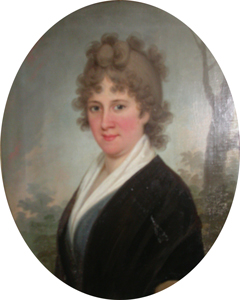
My grandmother (Cäcilie Böhl) had three brothers: Johannes (Johann Nikolaus Böhl von Faber), Gottlieb and Fritz Böhl. Gottlieb was a merchant in his father’s business in Cadiz. He married a Hamburg-born Meyer, sister of Senator Meyer and Mrs. Rehmöller. Gottlieb and his wife died of yellow fever, which raged terribly there (in Cadiz). The Spanish costumes that we still have came from Cadiz. Fritz[9] was the landowner of Gottmannsförde (near Schwerin) der sich den Adel kaufte (who bought himself a title of nobility). Johannes (Johann Nikolaus Böhl von Faber[10]) was more of a scholar than a merchant and lived mostly in Madrid. He married a Spanish woman, Frasquita de Larrea, daughter of an Icelander (this must have been a typing error – her mother was born in Ireland). Here is a sketch of Johannes Böhl’s life: He bought the estate, Görslow (near Schwerin, Mecklenburg) and because he had become Catholic and his wife did not feel at home in Mecklenburg, he sold the property again and remained permanently in Madrid. He had three daughters and a son (Juan Jacob Böhl von Faber).
[9] Fritz Böhl became Cäcilie Berckemeyer née Böhl’s advisor after her husband, Bernhard Philipp Berckemeyer died and she was left with 10 children, Thurow and debts.
[10] Johann Nikolaus Böhl von Faber was born in Hamburg, 1770 and died in Cadiz, 1836. He was Lutheran and later Catholic. His father was Johann Jakob Böhl and his mother was Cäcilie Ilsabe Lütkens. After his father’s death, his mother married Martin Jacob von Faber who adopted Johann Nikolaus Böhl in 1806 and his name then became Johann Nikolaus Böhl von Faber. (In Spain he was known as Juan Nicolás Böhl de Faber.) He was a lover of Spanish literature and culture and enjoyed some reputation as an author. In 1796, he married Frasquita Larrea (Francisca Javiera Ruiz de Larrea y Aherán 1775–1838), daughter of an Irish mother and a Spanish father. They had one son (Juan Jacob Böhl von Faber) and three daughters (Cecilia, Angela and Aurora Böhl von Faber). The eldest daughter, Cecilia (1796-1877) was a noted Spanish novelist who wrote under the pseudonym, Fernan Caballero.
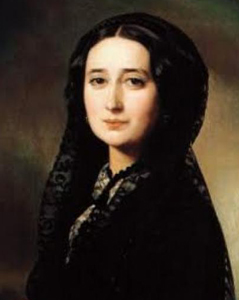
Cäcilie, the eldest became a writer and wrote under the pseudonym, Fernán Caballero. She was married three times, the last time to Arrom (Antonio Arrom de Ayala) in Seville where she lived in a Moorish palace and where my cousin, Gustav Jencquel visited her. As a young girl, she was in Thurow several times. My father (Ernst Philipp Berckemeyer) remembered her very well. She teased the German boy and when he fell asleep during the boring hours with Jean Lohmann, she tickled him with an ear of corn. My father later stayed in touch with his Spanish cousin. I remember that Spanish fruit and chocolate came from there and orange-yellow butter was sent back in return. The Spanish eat only butter which has been dyed.
The son, Juan, took the title of nobility and his stepfather’s (Martin Jacob von Faber) name and called himself Böhl von Faber. He married a step-cousin of my father, Elisabeth Berckemeyer, called Betsy. Juan bought the estate, Schmachtshagen in Mecklenburg. He had eight children and was not a competent agriculturist. He died young, leaving his wife and children in poor circumstances. The estate was sold and the mother (his wife) bought a small farm, Nebenhof, near Lübeck from where the children could easily go to school. I knew the children: Gustav, Adolph, Eduard, Rosa, Clementine and Ida and all except Rosa, are still alive. The two eldest sons did not marry, the youngest (Eduard?) married a Pflüg who had a wine shop in Lübeck. Clementine married a knight, von Schönfeldt, in Vienna and Ida married a Baron Ducka von Kadarr. Both are widows. There was a gay social life in Nebenhof. Aunt Betsy was unabashedly maternal and hospitable to everyone who entered her house. At that time there still existed the Stadtsperre, (city curfew) and there was always a chase and a race to get back to Lübeck before the curfew.
As already mentioned, I do not know much about my great-grandfather Berckemeyer (Johann Heinrich Bernhard Berckemeyer). He had three children: Bernhard Philipp, Heinrich and a daughter (Johanna Henriette). Both sons were merchants. The daughter married a Mr. Pauli from Lübeck. My grandfather, Bernhard Philipp, went to Calcutta at 19 years of age. His diaries provide further information about his commercial career. His two eldest children were born in Hamburg: Charlotte on June 27, 1797 and Eduard on November 20, 1798. On May 22, 1797 he bought Groβ Thurow situated in Herzogtum Lauenburg. Soon after that, he lost some of his fortune through unfortunate speculation. He retired to his estate. This was no easy matter for him – the merchant and spoiled man about town. At that time there were neither railroads nor highways. The roads were indescribably bad. It took two days to travel from Hamburg to Thurow. One had to stay overnight in Schwarzenbeck. Postal communication was also very poor. My grandfather understood nothing about agriculture and my grandmother (Cäcilie Berckemeyer née Böhl) knew just as little about a rural household.
Bernhard Philipp Berckemeyer (BP I)
Cäcilie Berckemeyer née Böhl
These were difficult times for both of them, and then there was one child after another. Franziska was my father’s (Ernst Philipp Berckemeyer) favourite sister; she died of scarlet fever as a child. Cäcilie (the tenth child) was born after my grandfather’s death. My grandfather had long had a wound on his leg and as it healed, he died unexpectedly on April 2, 1816. He still lies buried under our pew in the Mustin church. Now my poor grandmother was left with six (still-living) children and of those, only the two eldest were adults: Charlotte at 19 and Eduard at 18. The estate was heavily indebted. The grandparents (Cäcilie’s parents) wanted her and the children to move to Hamburg where they could provide for the children’s upbringing. The estate would have to be sold. My grandmother’s brother, Fritz von Böhl from Gottmannsförde, became the guardian and advisor to his sister. He advised her to keep Thurow and to drastically restrict expenses. This she did and as a result, her parents did withdraw and gave her no further special help. Charlotte (the eldest child), who had been very spoiled by her father, could not get along with her mother at all. The inspectors (foremen) were overseen by Fritz von Böhl.
One of these inspectors was a Mr. Stauber who liked my Aunt Therese (the 5th child) and who gave her a Sunday dress which was gratefully accepted (so poor was my grandmother) because the old one had a large grease spot. Aunt Therese was very embarrassed about this because she disliked Mr. Stauber. Aunt Charlotte later married this Mr. Stauber who had an estate in Spräßwalde in Holstein, but the marriage was very unhappy and ended in divorce. Against her mother’s will, in 1843 she married a second time, to Petersen, a school teacher in Neustadt in Holstein.
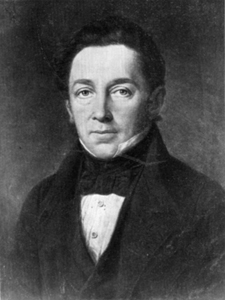
Because Groß Thurow was a fief, my Uncle Eduard was the rightful heir of the estate. Unfortunately, he was badly deformed[11] and according to the opinion of that time, he could not become an agriculturist. When we were Prussian, Thurow was Allod.[12] Now, with a heavy heart, Eduard became a merchant and turned over his rights to his younger brother (my father), Ernst. He first studied in Hamburg and then went to Spain. There he suffered greatly with his misshapen body, because Spaniards believe such people to be marked by God. Then he went to Valparaiso, where he earned a fortune. There he owned a villa with a garden, field, horse and carriage. The plan of his small estate is still in Thurow. After a few years, he returned home (for a visit) to his mother and siblings. He loved and cared about my father (Ernst Philipp Berckemeyer) in a touching way, and also for his sisters. His extensive correspondence is testament to his devotion to Thurow and foreshadows a melancholy and bitter mood. It was incomprehensible that he was deceived by a friend for whom he had vouched, and thereby lost all his hard-earned assets. Now, he lacked the courage to begin all over again. In desperation, he shot himself on November 4, 1843. This was a severe blow for my grandmother. She endured all difficult times with great resilience. She did not suffer to the same extent as Aunt Therese Jencquel (née Berckemeyer).
[11] It is worth noting that Eduard makes no mention of any deformity in any of his diaries or letters (see Eduard Wilhelm Berckemeyer – Diary & Letters) . The degree of the “deformity” may have become exaggerated over time. PG
[12] Allod is an allodial property – lands held in absolute ownership, free from such obligations as rent or services due to a feudal overlord.
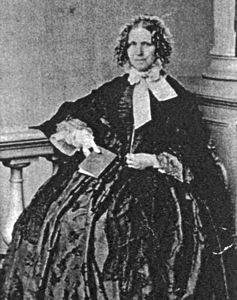
Aunt Therese received little education, and it was provided by Dr. Weber in Goldensee[13]. (At home) she acted mostly as housekeeper and almost always had to be in the kitchen. The many guests who my grandmother (Cäcilie Berckemeyer née Böhl) had and who simply had to be entertained, made socializing unbearable for my Aunt because it caused her so much work. The trips to Hamburg were terribly embarrassing for her. She arrived on a vegetable cart in front of her grandparent’s (Cäcilie Ilsabe Böhl and Martin Jacob von Faber) house in the old Jungfernstieg, with the products of the land to be unloaded. She often stayed longer with her grandparents, where it was particularly embarrassing for her when she had to walk her grandmother’s two little dogs. During such a visit, she met her husband, Gustav Jencquel, a wealthy merchant who owned two houses – one in the city and one in the country. The former with all its furnishings and silver, was completely burned in the Hamburg Fire.[14] That left only the country house located in Hanna in which the family lived. In winter, they lived in a hotel.
[13] Goldensee was a village and estate located across the lake from Thurow.
[14] In 1842, about a quarter of the inner city was destroyed in the “Great Fire”. This conflagration started on the night of May 4, 1842 and was extinguished on May 8. It destroyed three churches, the town hall, and many other buildings, killing 51 people and leaving an estimated 20,000 homeless.
My father also received his education with Dr. Weber at Goldensee. He had to go there early every day, by boat across the lake, or on the ice without any head covering. Many young people studied at Goldensee – Danish, English, Swedish, French and Spanish. They eagerly socialized with my three pretty aunts in Thurow. Many festivities were also hosted in Goldensee by Dr. Weber and his wife. She was a widowed Walcke (her married name), married her tutor (Dr. Weber) and since the stepchildren were not enough for him, he also boarded foreigners.
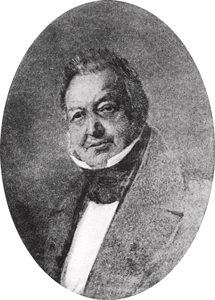
My grandfather’s (Bernhard Philipp Berckemeyer) only brother (Johann Heinrich Berckemeyer) was a merchant in Hamburg. He had three daughters from his first marriage – Elisabeth, married Juan Böhl von Faber; Franziska who had loved Uncle Eduard, died young; Emmy or Emilie Berckemeyer, married Heinrich Donnenberg who died in Madeira. (Johann) Heinrich’s second wife was a née Nolte and they had three sons – Harry, Gustav and Oskar. Gustav was a merchant in Hamburg and his first marriage was to a née Carles who was very rich. They had only one son, Arthur. His second wife was Helene O’Swald and they had eight children. Oskar Berckemeyer remained unmarried, lived the last years of his life in Hamburg and died there of old age in March 1906. In his younger years, he was in Valparaiso, South America and there acquired a large fortune. He was always a welcome guest in Thurow. The eldest son, Harry also went to South America but he did not manage to acquire wealth. He twice married Spanish women and had four children from the first marriage and four from the second. He died there in poor circumstances.
Thurow was always the centre for the family and my grandmother very much loved the companionship. There were always great family gatherings on her birthday, June 2. I remember only vaguely, the fifty year anniversary of the family’s ownership of Thurow. Many guests with coffee cups, wandered about the house and garden. We small grandchildren had to recite a verse in front of the Hütte (hut) and adorn our grandmother’s chair with a garland. The verse was:
Immer, immer bei dir bleiben
Wollen wir, uns soll vertreiben
Weder Kummer weder Schmerz.
Und um ganz bei dir zu wohnen
Laß an deiner Brust uns thronen,
nimm uns freundlich an dein Herz.
Always, always – we want to stay with you,
Neither sorrow nor pain shall drive us away.
And to always live with you
Let us perch upon your breast,
Take us kindly to your heart.
During this ceremony, the eldest grandchildren stood on a table in the Hütte as “Faith”, “Love” and “Hope” – Cäcilie Berckemeyer, Franziska Jencquel and Cäcilie Krüger. The old Hütte, in contrast to the present one, was situated entirely in the bushes so that there was no view of the lake. My father placed the Hütte[15] on the spot where it now stands, with the disapproval of the entire family who were afraid of drafts because of its open location.
[15] Kaffeehütte = coffee house or hut, moved or re-built near the house and lake.
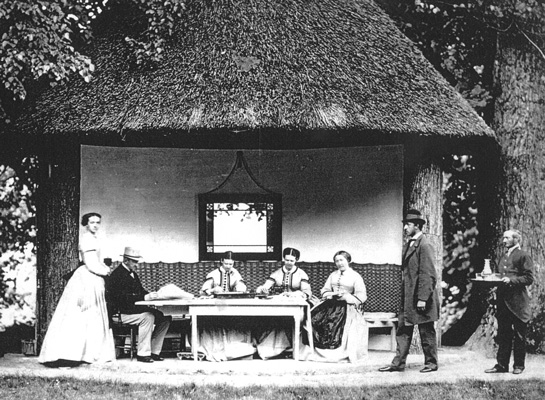
My father first learned farming from Mr. Fischer in Wendelbedl. He then went to his Uncle Böhl’s (his mother, Cäcilie’s brother) in Gottmannförde and worked as a clerk. Mr. Fritz von Böhl was very strict with his pupil, my father. There was always great excitement in Thurow when Uncle Böhl came to inspect. Later my father went to the agricultural school in Mögelin, founded by Professor Thaer[16]. There he became acquainted with his future brother-in-law, Hoffschläger[17].
[16] In 1806 Albrecht Daniel Thaer (1752 – 1828) founded an agricultural school at Mögelin. Many of Thaer’s ideas are still of relevance – crop rotation, the value of humus in plant nutrition, etc.
[17] His youngest sister, Cäcilie married Hoffschläger.
Ernst Philipp Berckemeyer (1808 – 1879)
Eleonore Berckemeyer née Manecke (1816 – 1888)
In 1837, my father married my mother, Eleonore Manecke from Ratzeburg. Her mother, my (maternal) grandmother, lived in Ratzeburg and owned the largest house on the Domplatz (cathedral square). She was married twice. The first marriage was to Mr. Manecke from Schwerin who was employed at the chancellery[18] in Schwerin. There were three daughters from this marriage: Elise – married to Dr. Engholm, my mother and then an unmarried Agnes. My grandmother’s second marriage was to a Councillor Schröder in Schwerin. They moved to Ratzeburg and had three daughters and a son – Pauline, Franziska, Marie and Fritz. Aunt Pauline married Captain Meyer from whom she was divorced. Aunt Franziska, who died in a mental asylum, married a farmer, Kuhlmann. Aunt Marie married a medical officer, Buchholz in Schwerin. Uncle Fritz was a nice, amiable man, studied law but could not take the exams and shot himself.[19]
[18] The office of a senior state or legal official.
[19] Cases of mental illness (depression) which sometimes appeared in the Berckemeyer family were always considered to have stemmed from Eleonore Manecke’s side of the family. It is interesting to note that Eleonore and one of her half sisters died in mental institutions and her half brother committed suicide.

When my father (Ernst Philipp) married, the house, which had a frontispiece[20], was enlarged and a second floor was added. My grandmother (Cäcilie Berckemeyer née Böhl) moved into one half of with house with her unmarried daughter, Mathilde, and my father moved into the other half. My father had a young volunteer, Paul Krüger from Hamburg who married Aunt Mathilde and bought the estate, Groß Weltzin in Mecklenburg. My father was married on December 5, 1837 and a few weeks later, Uncle Hoffschläger married our Aunt Cäcilie. After all her daughters were married, my grandmother (Cäcilie) took in a female companion, Caroline Moll who became my godmother but died soon after. The grave cross was still in the Mustin cemetery. She was succeeded (in death) by Doris Schröder[21], who outlived my grandmother (Cäcilie). She later ended her days in Lübeck.
[20] A decorated pediment over a portico or window
[21] Eleonore Manecke’s mother, named Schröder in her second marriage.
My poor mother (Eleonore Manecke) had, unfortunately, inherited an affliction from her father. The marriage was not a happy one and resulted in five daughters and a son. Because Thurow was a fief, it was a great concern for my father to have only one heir. This was when we had become Prussian and since then the estate was allodium (see footnote 12)
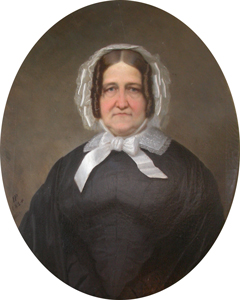
My grandmother (Cäcilie) still knew all of us. I remember her pleasant, friendly manner when she showed me how to paste on pictures and that she played with us in the garden temple.
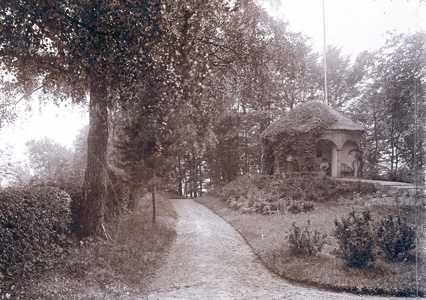
She died of pneumonia on November 21, 1852. I can clearly see her on her deathbed: a black silk scarf around her head and a large hymn book laid beneath her chin. She left a hard life behind but she had a cheerful nature and was always ready for contact with people and for socializing.
A difficult time began for my father (Ernst Philipp) because, more and more, he could see that his wife was not normal. Various treatment attempts were made and she went to an institution in Kiel[22]. She returned, apparently healed. During this time, Stolterfoths were tenants in Roggendorf and good friends of my parents. Mrs. Stolterfoth was the first to say that my mother was very ill, while the rest of the family assumed that she was stubborn and moody. On a beautiful Sunday morning, my sister, Mathilde Berckemeyer, and I obtained permission to drive to Dutzow[23] with the donkey cart. We drove off happily, not realizing what a difficult farewell had taken place in our absence. When we returned after several hours, our father met us on the edge of the estate, at the end of the Wasserallee (path along the lake). He told us to dismount and led us in silence to our little garden located in the lake garden. There he sat down on a bench, took us on his knees and told us, through bitter tears, that our mother was very ill and would be gone for many years in order to recover. We did not realize that it was forever, because she never came back to us from the institution[24]. She died in the Zehlendorf institution on April 14, 1888. She survived my father by nine years.
[22] 80 km northwest of Lübeck.
[23] 2.5 km south of Groβ Thurow.
[24] She lived there for 34 years.
Domestic unhappiness drove my father to outside activities. He became a Reichsmitglied (member of parliament) in Copenhagen. Before 1864, we were still under Danish sovereignty. We had a Danish military and postal service. The Danish king, Christian IX came to Ratzeburg with his wife, Danner[25]. At that time, my father had a good coachman and a dark brown coach and four (four horse carriage). He drove the King and Jahnn Bollow, the subsequent servant to the Countess Danner. My father was twice in the Copenhagen Reichsrat (government council). We also had a relative there, Mrs. Minister Pauli. We were related to this lady through my father’s Aunt Pauli. At this time, my father and his eldest daughter, Cäcilie, paid a visit to a childhood friend, landowner Eckermann, in Sweden. At this time, my father received the Danish Order of the Dannebrog[26]. He contracted a nasty cold on the way back from Copenhagen which laid the foundation for the paralysis, which very gradually completely took hold of him. In 1867, when Lauenburg became Prussian, King Wilhelm I with Bismark and Moltke[27] were in Ratzeburg for the swearing-in. My father, as the eldest (Landschaftsrat) district administrator (at that time they were called Landräte), could attend to the welfare of the Queen and take part in all the festivities. He subsequently received the 3rd Class Order of the Crown.[28]
[25] There is an error here. Louise Christine Rasmussen, known as Countess Danner was the spouse of King Federick VII of Denmark. When he died, Christian IX took the throne and married his second cousin, Louise of Hesse-Kassel (or Hesse-Cassel) .
[26] Danish chivalric order with six classes, awarded for meritorious civil or military service.
[27] Helmuth Karl Bernhard Graf von Moltke was a German Field Marshal. The chief of staff of the Prussian Army for thirty years, he is regarded as one of the great strategists of the latter 19th century, and the creator of a new, more modern method of directing armies in the field. He is often referred to as Moltke the Elder to distinguish him from his nephew Helmuth Johann Ludwig von Moltke, who commanded the German Army at the outbreak of World War I.
[28] The Order of the Crown (German: Kronenorden) was Prussia’s lowest ranking order of chivalry. Instituted in 1861, it could be awarded only to commissioned officers (or civilians of approximately equivalent status). The Order had six classes. 3rd Class – wore the badge on a ribbon on the left chest.
My father was especially active in agriculture. Long before the time of well maintained roads, he kept roads and lanes in good condition. As a result, Thurow was renowned for its well maintained roadways.
My father was sociable and had a great sense of family. There were always family gatherings on Pfingstfest (Pentecost or Whitsun[29] festival) and on his birthday, August 10. We had mostly family members as visitors but we also had many friends and acquaintances visiting us. His policy for house guests: mornings they had to entertain themselves while we quietly went about our work; in the afternoons, fun and entertaining activities were always planned, even if it was just an ordinary wagon ride.
[29] Whitsun (also Whitsunday, Whit Sunday or Whit) is the name used in the UK for the Christian festival of Pentecost, the seventh Sunday after Easter, which commemorates the descent of the Holy Spirit upon Christ’s disciples.
My father was generally up at 5 o’clock, drank a glass of water and breakfasted at 8 o’clock. Before that he said a short prayer. He never praised anyone if he was satisfied. His motto was: If I do not reprimand you, that is praise enough. We children had to blindly obey every word, not speak while at the table, allow only the adults to speak, and eat everything on our plates as well anything else that was brought to the table. But when we were grown up, our father left it to our own judgement to do what was right. He used to say: You are old enough to judge for yourselves; I can only advise you.
Throughout his long life he was noble of mind, fair to everyone, pious and devoted. He patiently endured the paralysis which gradually spread over his entire body. As if he had guessed that he would someday have to suffer that way, he had endless compassion for Jencquel’s father[30] who had been paralyzed by a stroke. When he visited us in Thurow, my father would push him around in a wheelchair for hours and had a card board made for him so that he could play whist in the evenings.
[30] Gustav Jencquel’s father. Gustav was married to Therese.
Among the regular guests who stayed longer, was Uncle Berckemeyer. That was what my father’s only uncle (Heinrich[31]) was called. I remember that he arrived with servants, a one-horse carriage and many fishing lines, to stay with us for months. He had one good day and one bad day – regularly alternating, so that it was nicely anticipated. On his bad days, we children gladly stayed out of his way. My sister Cäcilie had to read to him a lot. He was very particular about food and drink. For example, he had to sit in the kitchen while the coffee was roasted in order to control the process. His expression was Schiet von den Deubel (shit from the devil). He always made sure that all views in the garden were freshly cut out. Then, the gardener, Steinfelt, was busy in the garden with him the whole day.
[31] Johann Heinrich Berckemeyer was her grandfather’s brother, i.e. Bernhard Philipp Berckemeyer’s brother.
A singular figure who frequently visited us was old Mr. Christian Krüger from Hamburg, Aunt Mathilde Krüger’s father-in-law. He always came for only a few days, with his housekeeper Therese Hartung, and was dressed in an old-fashioned suit with jabot[32] and high Vatermörder.[33] He had three curly, chestnut brown wigs of different lengths that he alternated to give the illusion of growth. Every night he enjoyed a Brünellensuppe[34]. He greeted us children with “Putje Kralog”[35], taking our faces in his hands and kissing us. He used many French phrases with great fondness. His house on the old Jungfernstieg was hospitably open to us. He drove us to the theater and always had several guests for dinner. The overheated room, his morning coffee where there was so much sugar in the cup that it was visible over the top surface of the coffee, and his being shaved by a barber which I had to watch: all this has stayed with me, unforgotten.
[32] A decorative ruffle or other arrangement of lace or cloth attached at the neckline and extending down the front of a woman’s blouse or dress or, formerly, of a man’s shirt.
[33] A stiff, high collar with an open front, buttoned separately onto a man’s collarless shirt.
[34] A soup made with a medicinal plant, Prunella vulgaris. The common name is Brunelle in German, Self-heal in English.
[35] Presumably a term of endearment.
Otherwise, we also had another odd guest, Mr. August Schmidt, a bachelor from Trittau who acquired the right to live with us. At the time, my father was looking for a swine herd and accepted Mr. Schmidt for this position. But because it was an unpaid position, Mr. Schmidt demanded the right to live with us. That is how this peculiar situation happened. This man set up a foundation so that after his death, every Thurow child got a portion. My brother (Bernhard Heinrich Peter Berckemeyer) is the administrator of this foundation.
My youngest sister, Berta, a lovely, golden-haired, bright child, died of scarlet fever at age nine. She was my faithful playmate and I missed her grievously. We sisters were all in Miss Plessing’s Pension in Lübeck. My brother left home early, first to Pastor Rabe in Roggendorf, later to Pastor Lüdkens in Lübeck, and lastly to Professor Dettmann. Cäcilie was with Miss Plessing until my poor mother went to Berlin. She took over the household and the care of her siblings. Our first teacher was Miss Stöter, a good-hearted soul but with little energy. She had a crooked part in her red hair and always carried a little basket containing her set of keys and her handkerchief. The later was always swung in either a fit of anger or in astonishment. She was kind-hearted. Later, when Berta and I were alone, we had Miss Seitz as a teacher. We liked her very much. Miss Zwang was the last one and was very much disliked by us. After Berta’s death, I received my lessons from Pastor Hannewickel in Mustin and from Ida. I had to recover from scarlet fever before I went to a Pension. I experienced very pleasant hours in the Pastor’s house which was full of children. After a year, I went to Miss Plessing’s where I stayed for three years.
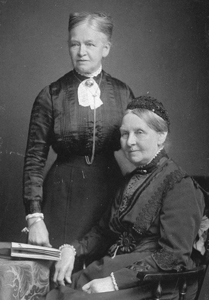
In 1863, Cäcilie married Pastor Walter in Schwerin. This same year, I was confirmed and returned to Thurow. Now Ida, Mathilde and I lived together. But to keep us on agreeable terms, a Miss Karthaus[36] came to live with us and stayed for eight years. She was very dear to us and is with whom I now live in Bayreuth.
[36] Miss Karthaus was a chaperone and can be seen in the 1863 photo of the family in the Kaffeehütte.
More and more, my father needed help, both with writing and with driving. My father was still driving at the time of my first ball. He drove me there, but only that one time. He was in Ratzeburg in civil servant, von Cossel’s office[37].
[37] The author may mean that he worked there at the time when he was still driving.
In 1868, Ida married my brother-in-law’s brother[38] in Schwerin.
[38] Cäcilie married Axel Walter and Ida married his brother, Woldemar Walter.
Bernhard Heinrich Berckemeyer (1840 – 1920)
Bertha Emilie Berckemeyer née Dreyer (1848 – 1925)
In 1870, my brother Bernhard married Bertha Dreyer from Altona and my father, Mathilde and I moved to the other side of the house, where earlier, our grandmother lived.[39]
[39] Whenever a new generation took over the estate and married, the older generation moved into separate quarters in the east end of the house.
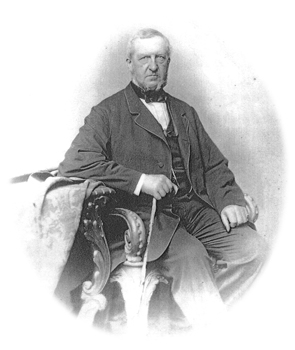
On June 29, 1879 my poor father died, almost completely paralyzed, patiently devoted to God. My sister (Mathilde) died five years before from lingering typhoid fever, the doctor thought.
Our dear father will be remembered by all of us as a model of patience, as a faithful father and as a genuinely noble German man!







